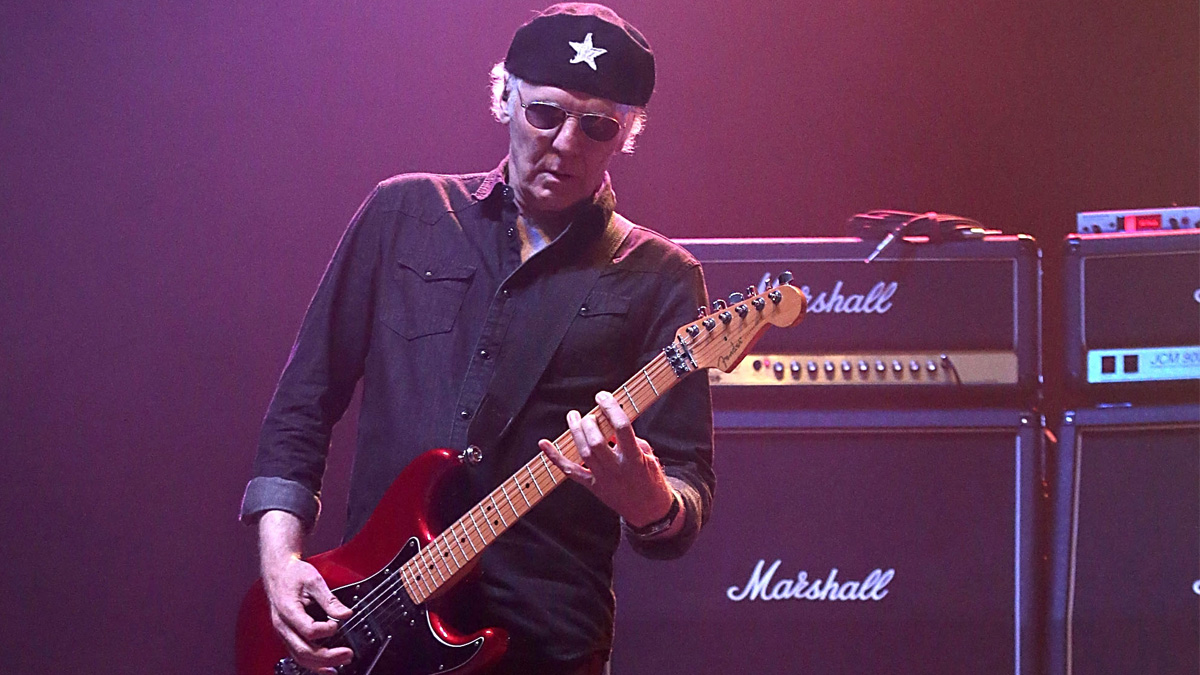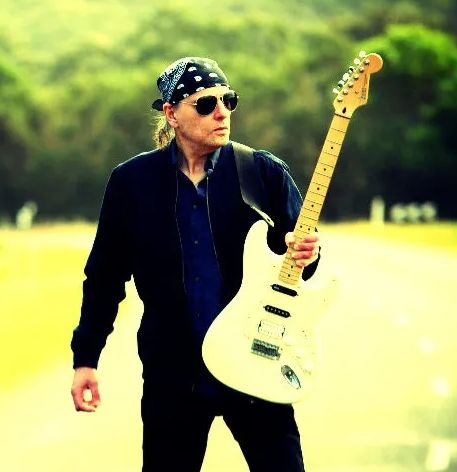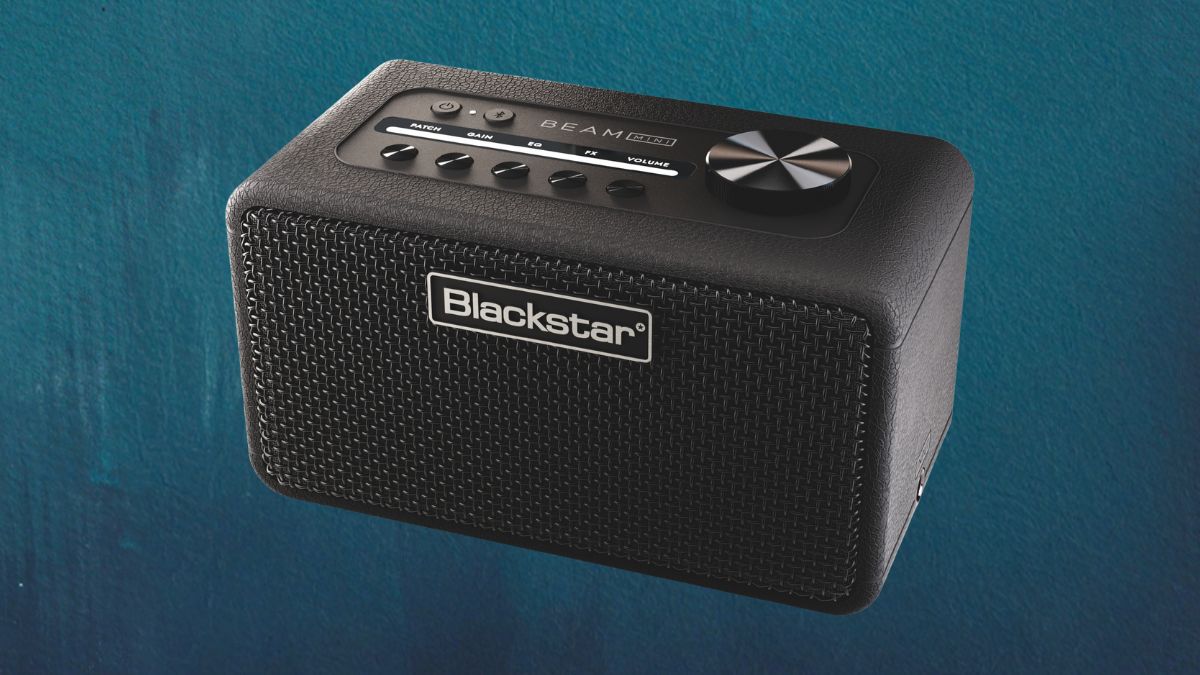7 questions with Loverboy's Paul Dean: First songs, embarrassing stage moments, and why the Neural DSP Quad Cortex is a game-changer
What kind of player is Paul Dean? Well, as he admits here, he is a pentatonics guy with some Middle Eastern scales thrown in for good measure – and one who knows the value of a good song

Living legend and longtime Loverboy guitarist Paul Dean checks in with Guitar World for some quick-fire Q&A action where he discusses the electric guitars he’d save from a house fire, the genius consistency of 21st-century amp modelers, and why you should not do big stretches when wearing cowboy boots onstage.
If you play guitar, you must, however, learn how to write songs, he says. Because that’s all that matters.
What was the first song you learned on the guitar?
“I Walk the Line by Johnny Cash. I learned it instrumentally – especially that Luther Perkins ‘boom-chicka-boom’ rhythm style, which was a big move on my part. In fact, I later used that ‘boom-chicka-boom’ thing for the ‘giddy-up’ part in the second verse of [Loverboy’s] The Kid Is Hot Tonite and again in the theme for Working for the Weekend.”
Ever had an embarrassing moment on stage?
“This last summer we were out opening for REO Speedwagon and Styx, and I don’t know what prompted me to do this, but, in the solo section of Turn Me Loose, I got down on both knees and I’m wailing away, my head’s back almost hitting the floor. Then it came time to stand up, and I’m in these biker boots. As I stood up, I lost my balance! I’m doing this backwards dance across the back of the stage and the crew – and the other bands – are watching me. So much for trying to be cool!”
What’s your favorite piece of gear?
All the latest guitar news, interviews, lessons, reviews, deals and more, direct to your inbox!
“The Neural DSP Quad Cortex. I have a modified 50-watt JCM 900 Marshall that I’ve had forever – a tech came up with the brilliant idea of putting an electronic power soak across the preamp tube – and that amp is sampled and profiled into the Quad Cortex. I used it all summer long on tour – the best thing about it is that it’s the same every night.
“You’re not relying on the power in the building, and you don’t have to dial it in at sound check as it’s identical every night. And what’s so great about that is it’s identical not only for you, but identical for all the other guys in the band and the sound guy out front. There’s no need for tweaking; it’s totally consistent.”
Start songwriting from day one, as that’s where it’s all at... If you don’t have songs, you don’t have anything
Suppose the building is burning down; what one guitar from your collection would you save?
“My original Strat that I built in 1974. It started out as a ’64 Strat, but I took out the cavity where the whammy sat and filled that in with oak and then filled in the whole body with plastic wood. I built a neck from scratch, which looks like a Tele because I just liked that headstock. It’s the guitar I used on Turn Me Loose, Working for the Weekend and The Kid Is Hot Tonite.”
When was the last time you practiced and what did you play?
“I just played some new riffs and practiced a couple of scales. Lately, though, I’ve spent most of my time tweaking my guitars. I have a new Godin that was built for me, so I’ve been tweaking that. I beefed up the block on it, as it has a Floyd, and dialed in the pots to get just the right amount of gain coming out of the guitar, so it can talk to my Sennheiser wireless, and then to the Quad Cortex and TC Electronic G-System, which is my entire chain.”
What aspect of guitar would you like to be better at?
“I have a style that’s pretty much pentatonic all the time, with maybe a few Middle Eastern scales thrown in, but that’s kind of where my head’s at, and how far I ever got. Though at sound checks, as our keyboard player Doug Johnson is a jazz freak, he always starts off the jam with a jazz thing. So I’ll try and catch the odd chord and maybe find a melody that works, but I have no idea what he’s doing or the changes he’s playing. That’s something I want to keep working on. It’s slow going, though.”
What advice would you give to your younger self about the guitar if you magically had the chance?
“I’d say start songwriting from day one, as that’s where it’s all at. There are a million guitar players out there that could smoke me, but as a songwriter, I think I have a unique style. And if you don’t have songs, you don’t have anything, really. That’s where it all comes from.”
- Get Lucky: 40th Anniversary is out now via Sony.
Joe Matera is an Australian guitarist and music journalist who has spent the past two decades interviewing a who's who of the rock and metal world and written for Guitar World, Total Guitar, Rolling Stone, Goldmine, Sound On Sound, Classic Rock, Metal Hammer and many others. He is also a recording and performing musician and solo artist who has toured Europe on a regular basis and released several well-received albums including instrumental guitar rock outings through various European labels. Roxy Music's Phil Manzanera has called him, "... a great guitarist who knows what an electric guitar should sound like and plays a fluid pleasing style of rock." He's the author of Backstage Pass: The Grit and the Glamour.



